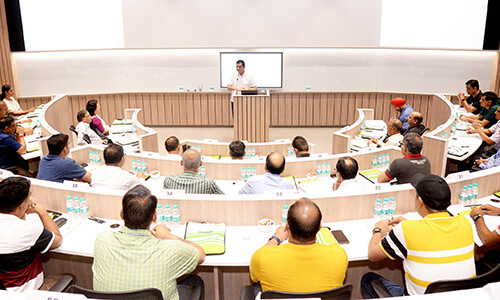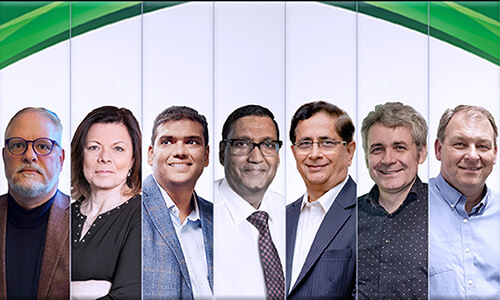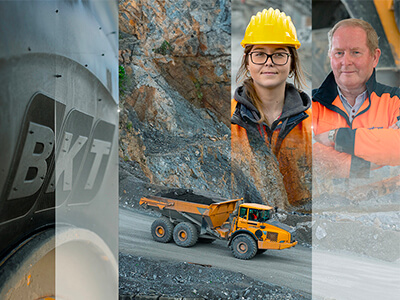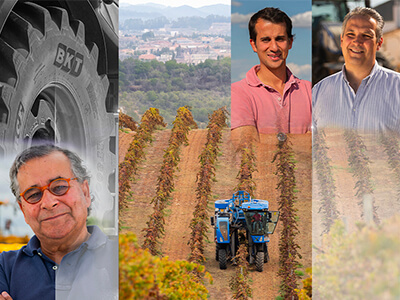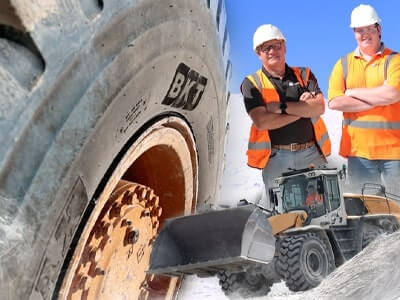As usual, we’ve got two guests joining me in the studio today, for our final episode of Global Trends.
So, onto our first guest. He is Senior Principal of the Climate Aligned Industries programme at the Rocky Mountain Institute. Based in the US, the non-profit RMI has been an advocate for energy efficiency since its inception 40 years ago – something that the emerging climate crisis of the last few years has only served to amplify.
Please, welcome to Global Trends Thomas Koch Blank. Thomas, won’t you join me?
Thomas, it’s a pleasure to have you join us today.
Thank you.
But before we get talking to him, don’t forget about the opportunity to follow the episode on our social media channels, log in, share your thoughts and comments, and discuss it with our viewers around the world.
So, Thomas, let’s begin with the big question: why is it so important that we seek to decarbonise the mining sector?
Well, mining and mineral extraction’s a vital element in the modern economy, we are still growing globally because of economic development and population growth, and I think as we do that, we are going to accumulate minerals into the economy.
Yes, as much what I would like to discuss that, our second guest is going to tell us more about that specifically!
Ok, that’s true, and I think while these materials are in theory infinitely recyclable the recycling does not cover the overall growth so we will need to have more minerals especially to cover the materials required for the energy transition.
Now, the mining industry needs to shout more about this issue, doesn’t it? And the industry’s changing: we’re not so focused on something like coal – which is not infinitely recyclable – and now the attention is on things like rare earth metals. I would say it’s quite a paradigm shift.
Well, I think in general you can divide the materials we dig out of the ground in two categories: it’s the “consumables”, so a lot of the energy come out of these are - you know coal, oil and gas – are extracted and then used; and then you have the minerals that are extracted and put into infrastructure or products and they can arguably be recycled and re-used and I think it all depends on the cost and the accessibility but also the value of the product. For example, take a cell phone, there is more gold in a cell phone per kg of phone if you if you like than there is per kg of ore coming out of the ground.
Do you think decarbonization is achievable in mining? Or is that a bit too unrealistic?
I don’t think it’s at all unrealistic. Recycling works with mining just as energy efficiency works for the energy system. It’s arguably the cheapest way of reducing the total energy consumption for the whole value chain.
When we’re talking about decarbonization in mining, do we more accurately need to talk about decarbonization of mineral usage, rather than just mining – so we include the whole life cycle?
I think that’s accurate. In a stable economy, where we’ve stopped growing – if we ever get there – I think you can imagine an economy that is in theory just recycling and living on existing minerals in the economy.
So, to your point, the emissions associated with mining is not only about digging material out of the ground; it’s also about transforming the raw material – the ore – into pure minerals and that process is quite energy efficient. So, if you recycle, you skip that step because the mineral has already been purified if you like.
That’s quite fascinating. Anything more you would like to add on this topic?
Well, you obviously have the emissions in the mine; and good news is that there are technological solutions also there.
Fantastic! And so that was what I was going to come on to. What we can do is cut back or eliminate the carbon we are using to get it out of the ground; isn’t it?
Yes, I think that is right. If we are looking at steelmaking, for example, of course there’s some policy or quite a lot of policy trying to both reduce the total amount of steel used in the economy but also increase the amount of recycling – and both these activities or policy interventions are from the mining perspective not great for business because it means less products – you know, there is a lot of markets that you can sell to.
For all this, again from the mining perspective I think it is quite critical to reduce the whole supply chain emissions because this means that you will have a long-term sustainable market opportunity where you can bring your product to the market without adding more carbon emissions.
So, with that all going on already, if electrification is already so widespread, what more can be done?
The biggest consideration is probably there are a lot of these operations are off grid as you say so they are in remote locations and when you buy renewables for these operations you are very exposed because you are the single buyer of electricity from a single producer. And that’s not as resilient as many, you know, conventional systems are. So that’s a bit of a barrier; but again, these trucks are also not easily electrified and it has to do with a duty cycles of the trucks so you want to have them running as much as possible and not standing still charging the batteries but also the weight of the batteries so every ton of battery you put on it means that you can carry one less ton of rocks with the same truck.
So, we’re looking for better battery technology?
Better battery technology would help but that unfortunately would not be sufficient.
But there are a couple of solutions coming up: there is hybrid solutions where you combine battery electric drive trails with traditional engines, and you can even combine them with what’s called overhead power supply so on the really power intensive stretches going up the ramp, for example. Another alternative is drop-in fuels so you can do biofuels to the extent you can get biofuels, or you can do synthetic fuels – and I think the third category of solutions here is hydrogen.
Again, presumably the hydrogen can be developed from renewable energy sources?
Absolutely – and I think especially for off grid operations that is true because the variable outputs from solar and wind fits very well with the hydrogen production which is more flexible than the power consumption in the mine. So, it actually is easier to electrify through hydrogen than electrify directly equipment in the mine.
Excellent. And what’s the timescale to achieve these goals? 2030, 2040, 2050 – when might we reach net zero?
So, the good news is that technology is known so for all of these options I think there is high degree of enlightening on what technology needs to be deployed; and also, these solutions are being tested at large scale and we have companies like Fortescue who have committed to not using any fossil fuel by 2030, already. And a lot of other mining companies committed to 2040 targets significantly before the 2050 timeline so I think there is a question of course of basically goes down to how fast we can replace existing equipment so that there will be a bit of a difference between new mining operations and transitioning existing ones.
Fantastic insight. So, we have reached the ‘Ask Away!’ segment of the program; to close the interview we pick a question from our social media channels. And Thomas here it is: is there any legislation in place to force decarbonization of the mining sector?
So, the short answer is no, because the mining industry is global, and there is no institute that has jurisdiction globally. So, regulations that are imposed on one region will not be major necessarily on other regions. I think there are two policy developments that are close to a global policy and one of them is a consumer-based policy. The two things you can do is to implement policy on the demand side; or you can subsidize clean energy and mandate the use of that instead.
And that means that everything that is imported in Europe needs to comply with the threshold of emissions and that technically makes it a global policy because everyone needs to comply in order to sell into Europe.
Thomas, I know there’s so much to say and so little time! Thank you, Thomas, that’s an interesting point on which to conclude.
